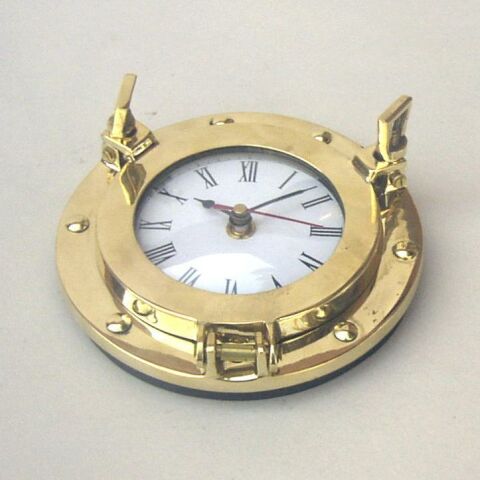Nautical Clocks
Open-sea travel required precise
timekeeping for a ship and its crew. As a ship sailed through time
zones, accurate timekeeping was required to keep a ship on the correct
longitude. The nautical clock is responsible for keeping an accurate
measure of time and consistent time zones changes. The nautical clock
became extremely important when calculating correct longitude was
required. To find a clockmaker capable of making such a device, the government of
England put forth a reward. Sir Isaac Newton was one of the many
scientists who doubted it could be made. John Harrison took a prototype
clock on a voyage from London to Lisbon in 1736, and the clock proved
functional. Harrison was granted five hundred pounds to pursue further
perfection of the device, and eventually created a nautical pocket
watch. Five hundred pounds was granted to Harrison to pursue the
perfection of his clock, and he eventually made a pocket version. In his
journey to the Pacific, Captain Cook used a version of Harrison's
nautical clock. At first, such clocks were far too expensive for the
average person, but prices gradually dropped.








No comments:
Post a Comment